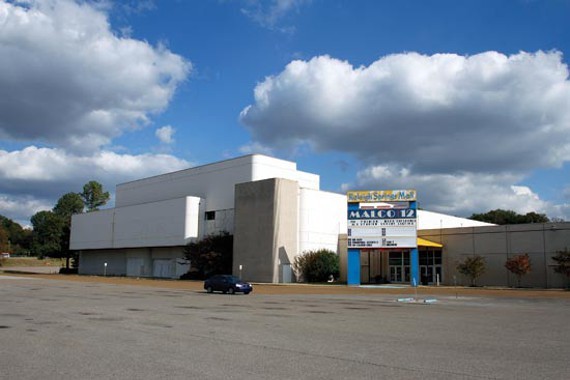The Raleigh Springs Mall is in “deplorable” condition but would get a total makeover that would cost at least $36 million in public funds under a plan the city administration and Memphis City Councilman Bill Morrison are pushing.
Morrison, Mayor A C Wharton, Housing and Community Development Director Robert Lipscomb, and architect Tom Marshall presented the plan to about 225 people at The United Methodist church in Raleigh Thursday night. The crowd filled the sanctuary, which was a welcome sight to the church’s minister John Holt, who is used to seeing half that many people at Sunday services.
“There is hope,” Holt said of the latest plan, which has been revised several times in the last three and a half years. The racially mixed crowd applauded speakers several times, and leaders of the Raleigh Community Council, a longstanding neighborhood association, are enthusiastic. Morrison lives in Raleigh, and Marshall grew up there, giving the meeting something of a homecoming atmosphere.
The plan calls for partial demolition ($7 million) and phasing out existing businesses over the next few years, construction of a public library, police precinct and traffic station to replace existing ones ($23 million), and construction of a lake and a large fountain recognizing the history of Raleigh Springs ($6 million). It is hoped that this would attract private development, but no names of interested investors were mentioned at the meeting. A story Friday in The Commercial Appeal put the total price at $60 million including private investment, but that number did not come up at the meeting.
“I was so glad they are not going to remodel the mall,” said Imogene Tisdale, president of the association.
Joy Jefferson, a Memphis police officer, Raleigh resident, and head of the neighborhood watch, said “we’re going to take Raleigh back, and Frayser.”
The mall is more than 40 years old and has lost its anchor retail tenants and movie theater. Marshall called its condition “deplorable” and said there are about 32 small businesses still operating. The owner of one of them, Averill Brittenum, who has operated a custom air-brushing shop for 19 years, was not pleased with some of what he heard.
“I was surprised at how the community was so in favor of it being destroyed,” he said. “I had an eerie foreboding of the destruction of my business. When they talked about Mom and Pop stores it makes me feel expendable. This is my livelihood.”
Morrison promised to fight for funding and said some of it is already in capital improvements budgets going out as far as 2018. “We deserve this,” he said. The plan, he said, “gives us a fighting chance to bring businesses and families back to Raleigh.”
The project, however, faces competition for funding from other big public projects in Midtown, Whitehaven, downtown and other council members’ districts. When the lake feature of the mall came up, there was an echo of the parking garage under construction in Overton Square. Marshall said the low areas on the mall site “might open the door to stormwater funding.” The Overton Square garage covers a stormwater retention pond.
Lipscomb mentioned several of the other public projects underway around the city, and said the administration’s strategy is to fund anchor developments and “connect the dots.”
“You cannot cut your way to prosperity,” he said. “Austerity does not equal prosperity.”
Working the crowd like a veteran politician, Lipscomb said “I am not a czar, I am a public servant. My problem is I can’t say no.”
I think I hung that one on him, and he might want to get a second opinion. When you tell people you’re going to give them lots of nice new things with tax money you influence they usually smile, applaud, and call you blessed. That’s politics.
